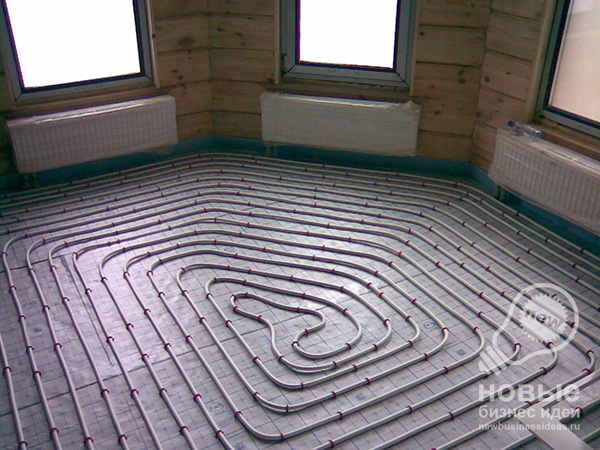Running Your Own Business: Warm Floors

💡 Want more business insights? Stay ahead of the curve with our exclusive updates!
👉 Join our Telegram channel for daily business ideas and expert tips.
👉 Follow us on Facebook to never miss a trend or update!
Don’t just read—connect, grow, and innovate with us today!
Types of Radiant Floor Heating
Radiant floor heating systems come in electric, infrared, and hydronic types. In the hydronic system, the source of heat is hot water circulating through pipes laid in the floor or encased in a cement screed. Hydronic radiant floors are reliable, durable, and eco-friendly, but their installation requires a highly skilled professional.
Electric radiant floors also require a screed, but they are easier to install compared to hydronic systems, making them more common. Infrared radiant floors, a subcategory of electric systems, or strip heating floors, do not need a screed and are the most cost-effective to purchase. Another popular option is a thermomatte – a floor with carbon rods on a fiberglass mesh that is laid directly under ceramic tiles. The choice between these types of radiant floors depends on the buyer's financial capability and room dimensions. Floors without screed are popular in rooms with low ceiling heights to avoid losing an additional 5-6 centimeters in height.
Business Organization
With knowledge of the nuances of installing radiant floors and the necessary skills, one can develop a business in multiple directions. Firstly, you can offer services solely for installation. With a good team of specialists, this alone can bring in decent profits. The average cost of a master's service is estimated at $8-10 per square meter of radiant floor. To kickstart this business idea, you will need transportation, minimal investments, and advertising through flyers in stores or construction material markets.
To exponentially increase profits, you can combine installation with purchasing and selling radiant heating systems. However, this requires more substantial initial investments, a larger team of employees, more vehicles, and the rental of warehouse space. These costs will be outweighed by becoming a dealer for a well-known radiant floor manufacturer. The profitability of this business project can reach 80-100 percent. By gaining experience in installation and establishing a positive reputation in the market, you can expand beyond direct consumer sales and form contracts with major construction companies and retailers based on manufacturer recommendations. Being a dealer also allows your firm's employees to receive specialized training in installing and maintaining different types of floors, ensuring they can provide necessary information to clients. Running a business centered on selling and installing floors is a demanding task, as any issues or incorrect installations can significantly impact the company's reputation and finances.
While not immediately necessary at the business's start, it becomes beneficial to create and launch a website for active online promotion as the business progresses. Studies show that around 50 percent of customers are acquired through online channels.
Unexplored Opportunities and Prospects
Farm operations such as private poultry farms, rabbit breeding farms, livestock farms, and any places requiring a consistent temperature maintenance present an intriguing market for firms specializing in radiant floor systems. This market niche is currently open and therefore financially appealing.
💡 Want more business insights? Stay ahead of the curve with our exclusive updates!
👉 Join our Telegram channel for daily business ideas and expert tips.
👉 Follow us on Facebook to never miss a trend or update!
Don’t just read—connect, grow, and innovate with us today!





































.jpeg)













Note: Comments are being moderated and may take a while to appear. There is no need to resubmit your comment.